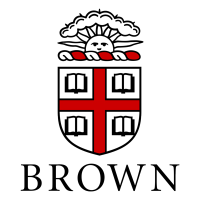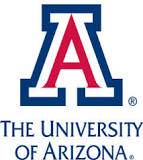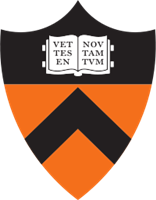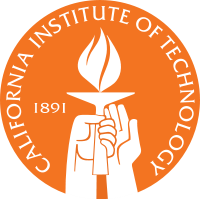What do they do?
Teach courses pertaining to the laws of matter and energy. Includes both teachers primarily engaged in teaching and those who do a combination of teaching and research.
Also known as:
Adjunct Instructor, Adjunct Professor, Assistant Professor, Associate Professor, Astrophysics Professor, Instructor, Lecturer, Physical Science Professor, Physics Instructor, Physics Lecturer, Physics Professor, Professor, Science Instructor, Science Professor, Teacher
-
3.9%
Change
Ranks #33 in job growth rate50Job Openings
Ranks #13 in net job growth
-
Brown University
Providence, RI
-
University of Rochester
Rochester, NY
-
University of Arizona
Tucson, AZ
-
California Institute of Technology
Pasadena, CA
-
Princeton University
Princeton, NJ
Looking for colleges that offer a specific major? Use the College Match Tool to find your best-matched schools and discover your estimated Net Price!
- Doctorate or Professional Degree (47%)
- Master's degree (31%)
- Bachelor's degree (15%)
- Associate's degree (2%)
- Some college, no degree (2%)
- High school diploma equivalent (2%)
- Less than high school diploma (1%)
Most Popular Majors that prepare Physics Teachers, Postsecondary
-
#1
-
Degrees Granted
1,724
-
Female Students
406
-
Male Students
1,318
-
Median Starting Salary
$55,100
-
-
#2
-
Degrees Granted
685
-
Female Students
451
-
Male Students
234
-
Median Starting Salary
$35,300
-
-
#3
-
Degrees Granted
154
-
Female Students
51
-
Male Students
103
-
Median Starting Salary
$55,100
-
-
#4
-
Degrees Granted
149
-
Female Students
49
-
Male Students
100
-
Median Starting Salary
$38,300
-
-
#5
-
Degrees Granted
110
-
Female Students
27
-
Male Students
83
-
Median Starting Salary
$55,100
-
People in this career often have these skills:
- Instructing - Teaching others how to do something.
- Reading Comprehension - Understanding written sentences and paragraphs in work-related documents.
- Speaking - Talking to others to convey information effectively.
- Science - Using scientific rules and methods to solve problems.
- Active Listening - Giving full attention to what other people are saying, taking time to understand the points being made, asking questions as appropriate, and not interrupting at inappropriate times.
- Writing - Communicating effectively in writing as appropriate for the needs of the audience.
- Critical Thinking - Using logic and reasoning to identify the strengths and weaknesses of alternative solutions, conclusions, or approaches to problems.
- Active Learning - Understanding the implications of new information for both current and future problem-solving and decision-making.
- Learning Strategies - Selecting and using training/instructional methods and procedures appropriate for the situation when learning or teaching new things.
- Judgment and Decision Making - Considering the relative costs and benefits of potential actions to choose the most appropriate one.
- Mathematics - Using mathematics to solve problems.
- Monitoring - Monitoring/Assessing performance of yourself, other individuals, or organizations to make improvements or take corrective action.
- Complex Problem Solving - Identifying complex problems and reviewing related information to develop and evaluate options and implement solutions.
People in this career often know a lot about:
- Mathematics - Knowledge of arithmetic, algebra, geometry, calculus, statistics, and their applications.
- Physics - Knowledge and prediction of physical principles, laws, their interrelationships, and applications to understanding fluid, material, and atmospheric dynamics, and mechanical, electrical, atomic and sub-atomic structures and processes.
- Education and Training - Knowledge of principles and methods for curriculum and training design, teaching and instruction for individuals and groups, and the measurement of training effects.
- English Language - Knowledge of the structure and content of the English language including the meaning and spelling of words, rules of composition, and grammar.
- Computers and Electronics - Knowledge of circuit boards, processors, chips, electronic equipment, and computer hardware and software, including applications and programming.
- Chemistry - Knowledge of the chemical composition, structure, and properties of substances and of the chemical processes and transformations that they undergo. This includes uses of chemicals and their interactions, danger signs, production techniques, and disposal methods.
People in this career often have talent in:
- Oral Expression - The ability to communicate information and ideas in speaking so others will understand.
- Oral Comprehension - The ability to listen to and understand information and ideas presented through spoken words and sentences.
- Written Comprehension - The ability to read and understand information and ideas presented in writing.
- Written Expression - The ability to communicate information and ideas in writing so others will understand.
- Problem Sensitivity - The ability to tell when something is wrong or is likely to go wrong. It does not involve solving the problem, only recognizing that there is a problem.
- Deductive Reasoning - The ability to apply general rules to specific problems to produce answers that make sense.
- Inductive Reasoning - The ability to combine pieces of information to form general rules or conclusions (includes finding a relationship among seemingly unrelated events).
- Mathematical Reasoning - The ability to choose the right mathematical methods or formulas to solve a problem.
- Speech Clarity - The ability to speak clearly so others can understand you.
- Near Vision - The ability to see details at close range (within a few feet of the observer).
- Speech Recognition - The ability to identify and understand the speech of another person.
- Number Facility - The ability to add, subtract, multiply, or divide quickly and correctly.
People in this career often do these activities:
- Evaluate student work.
- Develop instructional materials.
- Administer tests to assess educational needs or progress.
- Prepare tests.
- Teach physical science or mathematics courses at the college level.
- Advise students on academic or career matters.
- Supervise student research or internship work.
- Guide class discussions.
- Maintain student records.
- Evaluate effectiveness of educational programs.
- Develop instructional objectives.
- Supervise laboratory work.
- Stay informed about current developments in field of specialization.
- Attend training sessions or professional meetings to develop or maintain professional knowledge.
- Research topics in area of expertise.
- Write grant proposals.
- Write articles, books or other original materials in area of expertise.
- Select educational materials or equipment.
- Order instructional or library materials or equipment.
- Direct department activities.
- Promote educational institutions or programs.
- Perform student enrollment or registration activities.
- Serve on institutional or departmental committees.
- Compile specialized bibliographies or lists of materials.
- Plan community programs or activities for the general public.
- Advise educators on curricula, instructional methods, or policies.
This page includes data from:

 Occupation statistics: USDOL U.S. Bureau of Labor Statistics Occupational Employment Statistics
Occupation statistics: USDOL U.S. Bureau of Labor Statistics Occupational Employment Statistics









